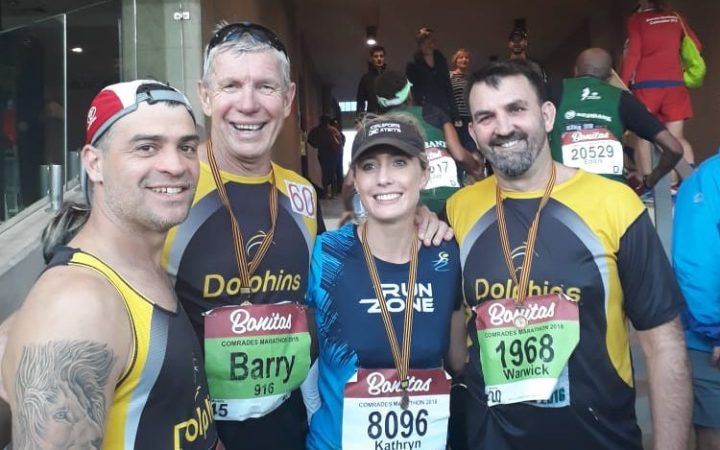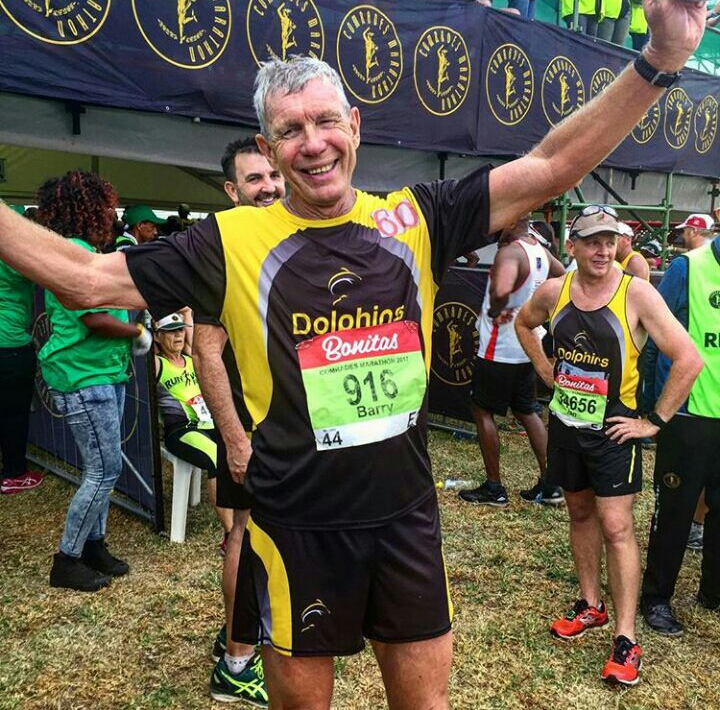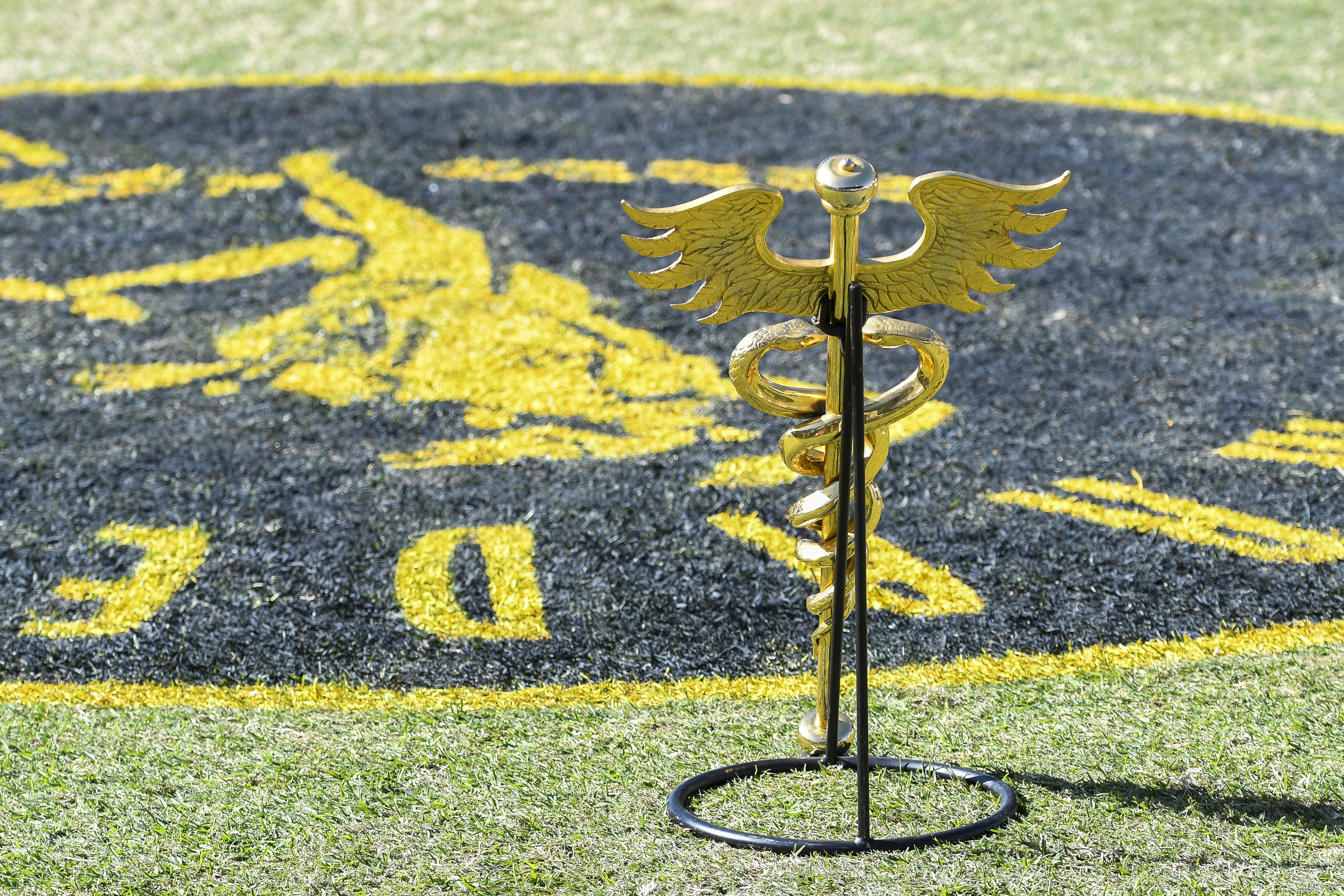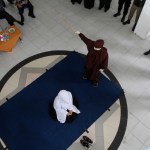REFLECTION
Barry Holland — a South African ultramarathon legend’s devoted journey

In the quiet hours before dawn, a special breed of athlete comes alive. When the world hovers between sleep and consciousness, ultramarathon runners find their stride.
They do not just run; they accept a quest that stretches well beyond the 42 kilometres of a standard marathon, into territory that tests the limits of human endurance.
Dr Zbigniew Waśkiewicz, an authority in the study of these athletes, found that success in ultrarunning comes from a specific lifestyle based on ‘total commitment’. These exceptional runners do not just fit running into their lives; they build their lives around the discipline: meticulously managing nutrition, prioritising restorative sleep, and rigorously focusing on recovery to mitigate injuries. They commit to running many miles, year after year.
Among the elite of ultra-marathon running stands a figure, whose tale transcends the ordinary: Barry Holland, moulded by the Comrades Marathon.
To truly comprehend the magnitude of Holland’s achievement with a staggering 49 consecutive finishes at the age of 71, including his pursuit of a 50th finish in 2024, one must first appreciate the challenge the Comrades Marathon represents.
The spirit of the Comrades Marathon
The South African Comrades ultramarathon was founded in 1921 by Vic Clapham as a tribute to the South African soldiers who lost their lives during World War 1. It is one of the oldest and most respected ultramarathons globally.
The 88-kilometre race, simply known as “The Comrades”, alternates annually between the “up” run from Durban to Pietermaritzburg, and the “down” run in the opposite direction. Completing the Comrades is seen as a rite of passage for serious runners: It is said that if you really want to call yourself a “runner”, you have to complete the Comrades at least once.
The event is not just a race but a cultural phenomenon, capturing a century’s worth of stories and symbolising resilience and unity.
Read more in Daily Maverick: The Comrades Marathon — a gruelling crash course in many of life’s (hardest) lessons
The 1967 event remains etched in history, where Tommy Malone and Manie Kuhn competed for victory. The anticipation was palpable as Tommy Malone was in the lead. Just metres from the line he collapsed, got up and lunged to the finish line still holding the Mayor’s Scroll given to all winners, as they entered the stadium. But it was too late. Manie Kuhn burst past him and was crowned the 1967 Comrades Marathon winner. The closest finish in the history of the Comrades, decided by a single second.
Witnessing this historic moment ignited the spark of 15-year-old Holland’s lifelong passion.

Barry Holland in 2017, the year he won his 45th medal. (Photo: Supplied by Barry Holland)
“In that moment I knew I had to do something, be someone, and become part of something bigger than myself — a moment that changed my life forever”, he relates in his book The Barry Holland Story.
“I think it is in the DNA of Durban people,” he contemplates. “Your reason for running the Comrades is the same as the reason you ascend mountains — simply because they exist, or because it presents an incredible challenge.”
Outrunning the ordinary
During a conversation with Barry Holland, I wanted to know: “What does it take to become extraordinary?”
Holland believes that the rigorous training for the 88-kilometre race, more than the race day itself, elevates participants from ordinary to extraordinary, embodying the spirit of the world’s ultimate road race.
“The Comrades is an extraordinary phenomenon,” he reflects. “It’s not just about running — it’s a spiritual journey shared with the countless onlookers along its path, each brief encounter contributing to a collective experience.
“You pass all these tens of thousands of people standing on the course. You have this millisecond of interaction with each of them. They’re supporting you — a unique dynamic that underscores the race’s profound impact.”
Holland regards the Comrades as a celebration of ordinary South Africans from every stratum of society, united by the ethos of ubuntu.
“I am because we are”, a bond Nelson Mandela described as an understanding that our humanity is tied to others, emphasising our interconnected successes. This philosophy transcends the physicality of the sport, elevating it to a shared journey that celebrates our collective humanity. Holland reflects: “It is this unifying force that empowers us to overcome the insurmountable.”
Beating the loneliness of the long-distance runner
Barry Holland’s running journey began at 18, marked by solitary runs on Durban North’s unforgiving roads that soon led him to abandon his training. A year later, despite renewed resolve, he struggled with the solitude inherent in long-distance running, leading to another halted attempt.
The turning point came just as he was on the brink of surrender for the third time. Holland’s solitary journey collided with thirty runners from the Regent Harriers club. Dr Waśkiewicz’s studies show that ultrarunners seek fulfilment not just from the act of running, but from the camaraderie and collective experience of like-minded people and the shared journey of the long run.
“It’s what happens at five in the morning, meeting your mates, talking, being out there together. It’s a hard sport; you need people to get through it. It is a wonderful sense of belonging, a strange relationship with an unwritten contract with your mates.”
Barry Holland on what it takes
Barry Holland’s philosophy on success is built upon three key elements: talent, mindset, and training.
“I’ve always considered myself genetically gifted, biomechanically sound, and a smart runner.”
Post Comrades, he religiously takes six weeks for recovery, an essential period to prevent injuries and allow for healing. Then begins the arduous 46-week training regimen anew.
The record of Holland’s achievements highlights a central truth: the magic of the Comrades unfolds not on race day, but in the months of taxing preparation leading up to it.

Trophy during the 2023 Comrades Marathon finishing at Hollywoodbets Kingsmead Stadium on 11 June, 2023 in Durban, South Africa. (Photo: Darren Stewart/Gallo Images)
Holland’s running journey has already covered an awe-inspiring 170,000 kilometres, with only 4,300 km (2.5%) being within the 49 actual races. That is equivalent to circling the globe more than four times. This stands as a testament to the relentless training of a dedicated runner and his 22 silver medals, 6 Bill Rowens medals, 20 bronze medals, and one Vic Clapham medal.
His mental toughness, especially in the gruelling final stages of a race, underpins his philosophy of enduring pain, striving for excellence, and expending every ounce of effort to reach the finish line. “When you race,” he advises, “leave nothing on the road. Get to the finish line knowing you’ve given everything you possibly could.”
Holland confided: “When I embarked on my Comrades journey, the thought of completing 50 was unfathomable.” He explains that this ultra-distance race has a way of drawing people back for the challenge: “You start with the intention of just one race, but soon you’re hooked, not just on the run, but on the relentless pursuit of bettering oneself.”
He has maintained a steadfast mindset: finish the Comrades and prepare for the next. “I never changed that thought process… You will be amazed how quickly the years and the medals tick by, and then, suddenly, you are approaching a green number, and that is again another motivation.” DM
This feature was done with the help of Cilliers Willers.




















 Become an Insider
Become an Insider
Minor detail correction; the race was first run in 1921.
The link to the book is wrong:
You can purchase the book on the Dolphin Coast Striders Website
Not on that random chapter 1 books resale site for an outrageous amount
You must remember that it is only White Men who have been eligible to run in 50 Comrades so this achievement is only available to a tiny minority of South Africans. It’s going to get really tedious hearing about it all the way to June 9th.
Comrades opened to Black entrants from 1975, to the annoyance of the apartheid govt of the time. Zwelitsha Gono has run 42 times, his first being in 1973 at age 21, when he ran unofficially, and that run has since been accepted into the record. Since 1975 it would be theoretically possible for someone to have officially run 45 times – there are however only 3 people to have done so. There are also only 10 people to have run more than 40 consecutive times, Holland has done so 49 times. Your comment has a whiff of irrelevant spitefulness and whataboutitis to it.
Your comment suggests you don’t understand White Privilege and its pervasive influence in modern South Africa. This milestone is not something to celebrate. If Zwelitsha Gono makes it to 50 we can all celebrate then- with Barry if he is still running then.
I would be keen to know what your (Tom’s) understanding of “White Privilege” is and why you choose to capitalize (ditto “White Men”). Perhaps you should ask what veteran runners like Gono have to say about Holland’s performance. You sadly seem to lack generosity of spirit.
So if there is an achievement by a white South African its not worthy of celebration? Just checking…. Of course if he was a Russian you would be fawning all over him I’m sure…
Meanwhile from 2016 over $53bn of foreign shareholders has been sold out of our shares. Thats more than R1trn. Disinvestment from bonds would add a further R300bn. Thats because foreigners with money don’t want to back a country that seems more interested in whining than winning. How about you write a column about that?
Barry ran and finished his first Comrades in 1973 and has finished the race every year since then, but he did miss out on two medals in 2020 and 2021, when the race was cancelled due to COVID. Louis Massyn has a near identical record, but did not start the 2022 race due to a knee injury. I have been privileged to interview and write about both over the years, and in my opinion, both are hugely inspirational stalwarts of the sport.
Equally inspirational is Zwelitsha Gono, who also ran his first Comrades in 1973, albeit unofficially, and his 1973 and 1974 unofficial finishes were retrospectively added to his total. Thankfully, he was able to run the race officially from 1975, and he finished every year from 1973 to 1981, missed 1982, then earned a medal every year from 1983 to 2005, bringing his total to 32 medals. He did not run the race from 2006 to 2009 – I do not know the reason – but returned in 2010 and worked his way up to his 40th medal in 2016, and a 41st in 2017. He did not finish the race in 2018, but collected medal number 42 in 2019 with an 11:54:51 finish.
Zwelitsha did not start the race in 2022 or 2023, and I do not know if he intends running more Comrades Marathons. Age, injuries, illness or other reasons may mean he is no longer able to finish the race within 12 hours, or he may have decided that 42 medals are enough. Then again, perhaps he will be back to try for number 43 this coming June.
Very few runners enjoy such long ultra-marathon careers, which is why, out of tens of thousands of Comrades runners, only 17 male runners* have finished the race 40 times or more after 96 editions of the Comrades, and why only six women* have finished the Comrades 30 times or more. All of them deserve to saluted for their incredible achievements. (* I stand to be corrected on these exact numbers, as I am admittedly going off memory here.)